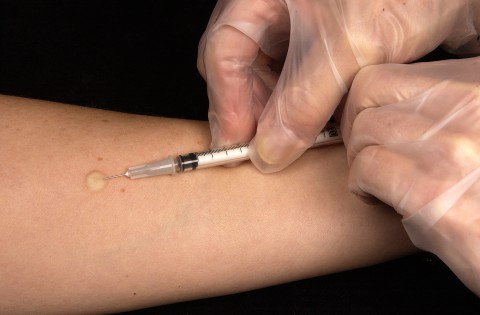 Twice in the last six months, the national supply of skin scratch tests used to detect Mycobacterium tuberculosis (TB) has fallen to critically low levels.
Twice in the last six months, the national supply of skin scratch tests used to detect Mycobacterium tuberculosis (TB) has fallen to critically low levels.
The tuberculin skin tests (TSTs) are the preferred method of testing for exposure because they are both inexpensive and reliable.
In order to counteract the shortage, health state departments are pre-screening potential test candidates and may limit the tests to those who have had the greatest chance of exposure. This will leave more tests available for use by discretion.
In addition to the common skin scratch test, there is also a more costly blood test available. These are the only two testing methods for detecting TB, so it is important that the supply chain issues are dealt with to prevent future shortages.
Travelling nurses and other travelling allied health professionals, as well as anyone working in a healthcare or school setting, generally need to have this test done annually. For health professionals who routinely travel to areas where TB is prevalent, there are other challenges inherent to the shortage.
Switching skin test manufacturers or intermittently using a blood test may make it more difficult to conduct long-term comparisons, as it could be difficult to accurately compare each set of data. This could make it less precise as an ongoing diagnostic tool.
Health officials from the CDC and other agencies are working together in hopes of mitigating the chance of future shortages.
Being resilient and working through inconvenient situations with grace and patience is part of the personal skills needed to excel as a travelling health professional. From weather delays to schedule changes and temporary housing situations to variable working conditions, traveling health professionals need to be able to adjust positively to situations over which there is little control.
At the same time, the compensation, travel perks and a sense of adventure keep nurses and other travelling professionals coming back for repeat assignments. Veteran travelling health professionals form bonds among peers and may choose to rotate through the same locations throughout a calendar year in order to enjoy favorite places again and again.
Excellent interpersonal skills, personal resilience, relevant professional experience and top training all play a part in successful longevity as a travelling health professional.









